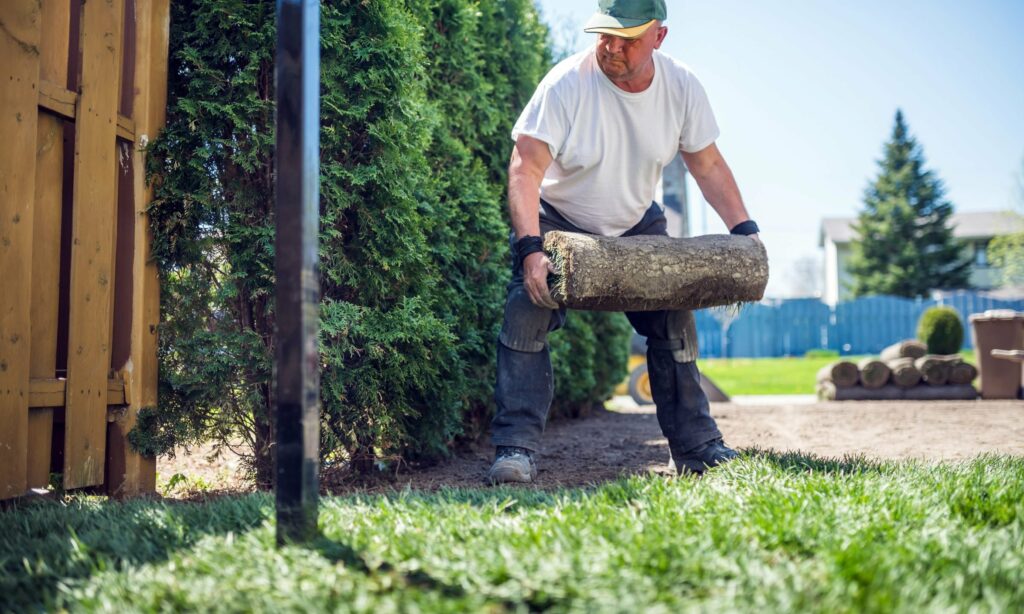3 Top Marketing Strategies for Landscaping Businesses

3 Top Marketing Strategies for Landscaping Businesses
In the competitive world of landscaping, standing out can be a challenge. It’s not enough to simply deliver top-notch services; landscapers must also employ effective marketing strategies to attract and retain clients. In this article, we’ll explore three key marketing tips that can help landscapers increase their business.
These tips aren’t just theory; they’re grounded in proven tactics that successful landscapers have used to expand their client base. Whether you’re a seasoned professional or just starting out in the industry, these strategies can provide a solid foundation for your marketing efforts. Let’s delve into these game-changing tips that can take your landscaping business to the next level.
Tip 1: Utilize Social Media Platforms
The power of social media in today’s digital age cannot be overstated. The first marketing tip for landscape professionals is to make optimal use of social media platforms. Successful landscapers have harnessed this versatile platform to engage their current clients and attract potential customers.
Leveraging Social Media for Brand Display
Landscape professionals can leverage social media for brand display. Sites such as Instagram or Pinterest are ideal for showcasing beautiful garden landscapes and outdoor decor projects. By posting high-quality images of their work, landscapers can demonstrate their skills and creativity to potential clients. This visual portfolio can create a compelling narrative about their quality of service.
The post should contain a brief project description accompanied by relevant hashtags for increased visibility. Also, it’s essential to respond promptly to any inquiries or comments on these posts to foster an interactive community. After all, communication is key in gaining and maintaining clients’ trust.
Use Social Media for Promotions and Deals
Social media serves as a direct communication line between the landscaper and their customers. They can utilize these platforms to announce seasonal offers, discounts, or special packages.
For example, a markdown table presenting a seasonal promotion could appear like this:
| Landscape Package | Original Price | Discounted Price |
|---|---|---|
| Basic Lawn Care | $150 | $120 |
| Premium Garden Makeover | $300 | $250 |
Such promotions not only drive more traffic towards their services but also act as a customer-appreciation move. Coupling these deals with high-quality service ensures that their clientele remains loyal and often refer others to avail of their landscape package services.
Engaging Followers with Interactive Content
Besides posting content, it’s also crucial to engage followers with interactive content. It could be a simple poll asking people about their favorite types of garden decor, a landscaping quiz or a live Q&A session addressing landscaping concerns. Engagement drives interaction, conveys a sense of community, and places the brand directly in conversations leading to increased exposure and potential client acquisition.
Using social media effectively allows landscapers not just to market their services but also to connect with their audience, adding a personal touch to their professional identity. This builds trust, encourages customer loyalty, and ultimately leads to business growth.
Tip 2: Create a Professional Website
In the digital age, an online presence isn’t just beneficial – it’s essential. A professional website acts as an online storefront, introducing potential clients to a landscaper’s work and inviting them to explore further.
For many people, a company’s website is their first point of contact with the business. They’ll land on the homepage, take in the design and ease of navigation, and form an instant opinion on the company’s professionalism and value. If the website is cluttered, difficult to navigate, or doesn’t adequately showcase the landscaper’s work, visitors may quickly back out and look elsewhere.
Landscapers can ensure that their website will attract and retain potential clients by focusing on certain key areas. First and foremost, the website should be visually appealing. This might seem obvious, but it’s amazing how many businesses neglect this aspect. Beautiful, high-resolution images of past landscaping projects should be front and center. These images serve to impress visitors and adequately reflecting the level of skill and expertise held by the landscaper.
Next, the website should be easy to navigate. Information about the landscaper, such as experience, qualifications, testimonials, and contact information, should be easy to find. A sluggish, cluttered website frustrates visitors and conveys unprofessionalism.
Finally, consider implementing a contact form or live chat feature on the website. This allows potential clients to effortlessly reach out for more information or to request a quote.
While marketing via social media platforms is crucial, don’t overlook the important role a website plays in increasing visibility and garnering business. In the landscaping industry, a captivating, well-organized website can spell the difference between obscurity and success.
Moving forward, the final key element of a successful marketing strategy in the landscaping industry can shine a new light on garnering more business. This element is none other than strategic partnerships, which will be discussed in depth in the upcoming section.
Tip 3: Implement Local SEO Strategies
Local Search Engine Optimization (SEO) is a powerful way for businesses to reach potential customers in their area. It’s an often overlooked part of a landscaping company’s digital marketing strategy, but it’s crucial for drawing in nearby clientele and beating local competition.
SEO strategies focus on improving a website’s visibility in the unpaid or “organic” section of search results. This visibility is achieved by aligning the website’s content with what potential clients are searching for online. When a potential client searches for local landscaping services, you want your business to appear.
The optimization process starts by identifying relevant keywords, such as landscaper in [your city] or local landscape services. These phrases are then integrated into the website in a natural and strategic manner. They can be included within page titles, meta descriptions, webpage content, and URLs.
Another important aspect of local SEO is ensuring your business is listed correctly and consistently on online directories, such as Google My Business, Yelp, and others. A well-optimized listing can significantly boost local visibility. Take a moment to review and update your profiles, ensuring the name, address, and phone number (NAP) are correct.
The benefit of local SEO for landscapers cannot be overstated. Consider this:
Based on the U.S. census data,
| Landscapers |
Total
| — | — |
| Operating in the U.S. | 513,305 |
With this level of competition, a strong local SEO strategy is not just an option but a necessity for landscapers hoping to stand out.
SEO is a continuous process. To stay relevant in search results, one must continually update their website and online listings with fresh, keyword-centric content. The constant tweaking and tracking may seem overwhelming, but the payoff can be substantial.
So as a landscaper, investing time and resources into local SEO strategies should certainly be a top priority. With the population increasingly turning to online searches for services, landscapers do well to ensure they are well represented.
Conclusion
The landscape of success for landscapers is ever-changing, but it’s clear that a strong online presence is key. By leveraging the power of social media, creating a compelling website, and focusing on local SEO, landscapers can truly stand out. They’ll not only attract more clients but also foster stronger relationships with existing ones. This digital age demands constant attention to online marketing strategies. It’s not a one-and-done deal but a continuous process of adaptation and improvement. For landscapers willing to invest the time and resources, the online world offers vast opportunities for growth. So, it’s time to roll up those sleeves and dig into the digital soil. The rewards are worth it.
References:
Lucas Noah is a tech-savvy writer with a solid academic foundation, holding a Bachelor of Information Technology (BIT) degree. His expertise in the IT field has paved the way for a flourishing writing career, where he currently contributes to the online presence... Read more


